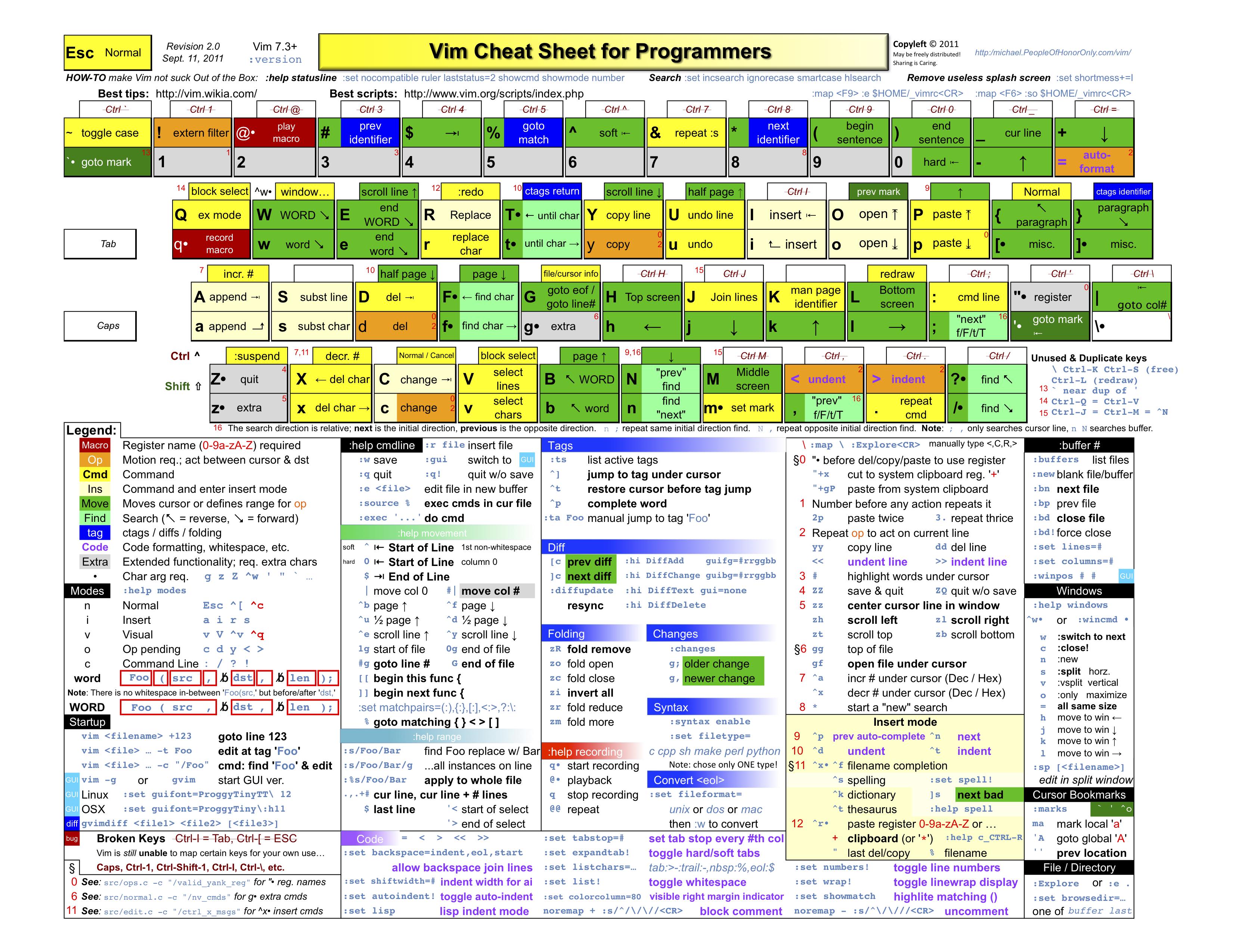本脚本是我使用的比较顺手的c/c++开发专用vim配置脚本,功能堪比简单的ide :)
运行如下命令即可完成安装:
cd ~
git clone https://github.com/wuzangsama/vim_ide.git
cd vim_ide
sh install.sh
- vim的leader键映射成了
;,可自行更改为其他顺手的键 - 配色方案为ron,可自行更改为其他主题,本人测试在xshell下此主题比较耐看
- airline在xshell下可能会有乱码,需要设置成特定字体,在windows下使用git clone https://github.com/powerline/fonts.git 命令下载后安装字体,然后在xshell下设置
- 映射
0为定位到行头功能,比^键更加方便 - 映射
<leader>q为关闭当前窗口功能 - 映射
<leader>w为保存当前窗口功能 - 映射
<leader>WQ为保存所有窗口内容并退出vim - 映射
<leader>Q为不做保存退出vim - 映射
<C-w>或TAB为切换子窗口 - 映射
<C-k>,<C-j>,<C-h>,<C-l>为切换上下左右窗口 - 使用
<C-Left>和<C-Right>来切换已打开的buffer --old
- 映射
<F7>为编译c/c++文档 - 映射
<F5>为调试c/c++ --old
- 映射
<Leader>R为替换非整词匹配,替换时不确认 - 映射
<Leader>rw为替换整词匹配,替换时不确认 - 映射
<Leader>rc为替换非整词匹配,替换时确认 - 映射
<Leader>rcw,<Leader>rwc为替换整词匹配,替换时确认
- 映射
<Leader>A为切换h/cpp,h/c文件 - 使用
ma/mb...等用来打标签,可实现同一文件的位置标记可视化,使用`a/`b可进行定位
mx Toggle mark 'x' and display it in the leftmost column
- 使用`gcc`来注释和反注释,使用`gcap`来注释整个段落
dmx Remove mark 'x' where x is a-zA-Z
m, Place the next available mark
m. If no mark on line, place the next available mark. Otherwise, remove (first) existing mark.
m- Delete all marks from the current line
m<Space> Delete all marks from the current buffer
]` Jump to next mark
[` Jump to prev mark
]' Jump to start of next line containing a mark
[' Jump to start of prev line containing a mark
`] Jump by alphabetical order to next mark
`[ Jump by alphabetical order to prev mark
'] Jump by alphabetical order to start of next line having a mark
'[ Jump by alphabetical order to start of prev line having a mark
m/ Open location list and display marks from current buffer
m[0-9] Toggle the corresponding marker !@#$%^&*()
m<S-[0-9]> Remove all markers of the same type
]- Jump to next line having a marker of the same type
[- Jump to prev line having a marker of the same type
]= Jump to next line having a marker of any type
[= Jump to prev line having a marker of any type
m? Open location list and display markers from current buffer
m<BS> Remove all markers
- 使用
<F2>可以在右边调出tag标签列表,方便查看函数列表等 --old - 映射
gag在工程文件夹下搜索选中的单词 --old - 可视模式选中一部分单词,可以使用
<S-m>来一次选中多个该单词,使用<S-k>跳过当前选中的单词 - 可以使用
<Leader>m来高亮一个单词 - 可以按
F12来切换鼠标作用在终端还是vim,切换到终端可以使用复制黏贴动作 - 因为跟YCM的按键冲突,改为使用
<Leader><tab>键来做snip快捷输入 - 写完.h文件的申明后,在c文件或者cpp文件中使用
<Leader>PP来生成函数定义 - 使用
<F3>来调出文件浏览器 - 使用
+来选中两个括号或大括号等成对符之间的内容,快速选中快速修改 - 使用
<Leader>ud打开undo树,牛逼版u键 --old - 使用
<C-P>打开工程中搜索文件窗口,查找文件各种方便 --old - 使用
<Leader>da生成文档说明头,可以自行更改vimrc文件中的user来产生自己的头 - 将光标定位在函数定义或申明那一行,使用
<Leader>df生成函数说明文档 - 补全时使用
tab来选中想要的匹配项 - 除了使用默认的跳转命令,还可以使用
<Leader>j来查找定义 - 使用
ga=来对齐等号,使用ga:来对齐冒号,让代码更美观 - 使用
gcc来注释和反注释,使用gcap来注释整个段落 - 使用
<Space>b来打开buffer列表,使用<Space>f来搜索打开文件,使用<Space>g来搜索单词 - 使用
<Space>r来打开最近打开文件,使用<Space>o来打开函数列表 - 使用
<Space>ci来查找调用该函数的地方,使用<Space>cf来查找函数定义 - Surround插件说明
例子:
Old text Command New text ~
"Hello *world!" ds" Hello world!
[123+4*56]/2 cs]) (123+456)/2
"Look ma, I'm *HTML!" cs"<q> <q>Look ma, I'm HTML!</q>
if *x>3 { ysW( if ( x>3 ) {
my $str = *whee!; vlllls' my $str = 'whee!';
<div>Yo!*</div> dst Yo!
<div>Yo!*</div> cst<p> <p>Yo!</p>
命令列表:
Normal mode
-----------
ds - delete a surrounding
cs - change a surrounding
ys - add a surrounding
yS - add a surrounding and place the surrounded text on a new line + indent it
yss - add a surrounding to the whole line
ySs - add a surrounding to the whole line, place it on a new line + indent it
ySS - same as ySs
Visual mode
-----------
s - in visual mode, add a surrounding
S - in visual mode, add a surrounding but place text on new line + indent it
Insert mode
-----------
<CTRL-s> - in insert mode, add a surrounding
<CTRL-s><CTRL-s> - in insert mode, add a new line + surrounding + indent
<CTRL-g>s - same as <CTRL-s>
<CTRL-g>S - same as <CTRL-s><CTRL-s>
其他常见用法
ci: 例如,ci(,或者ci),将会修改()之间的文本;
di: 剪切配对符号之间文本;
yi: 复制;
ca: 同ci,但修改内容包括配对符号本身;
da: 同di,但剪切内容包括配对符号本身;
ya: 同yi,但复制内容包括配对符号本身。
PS. dib等同于di(。diB等同于di{。
- 输入once,按下
<Leader><tab>可以生成头文件保护宏:)
